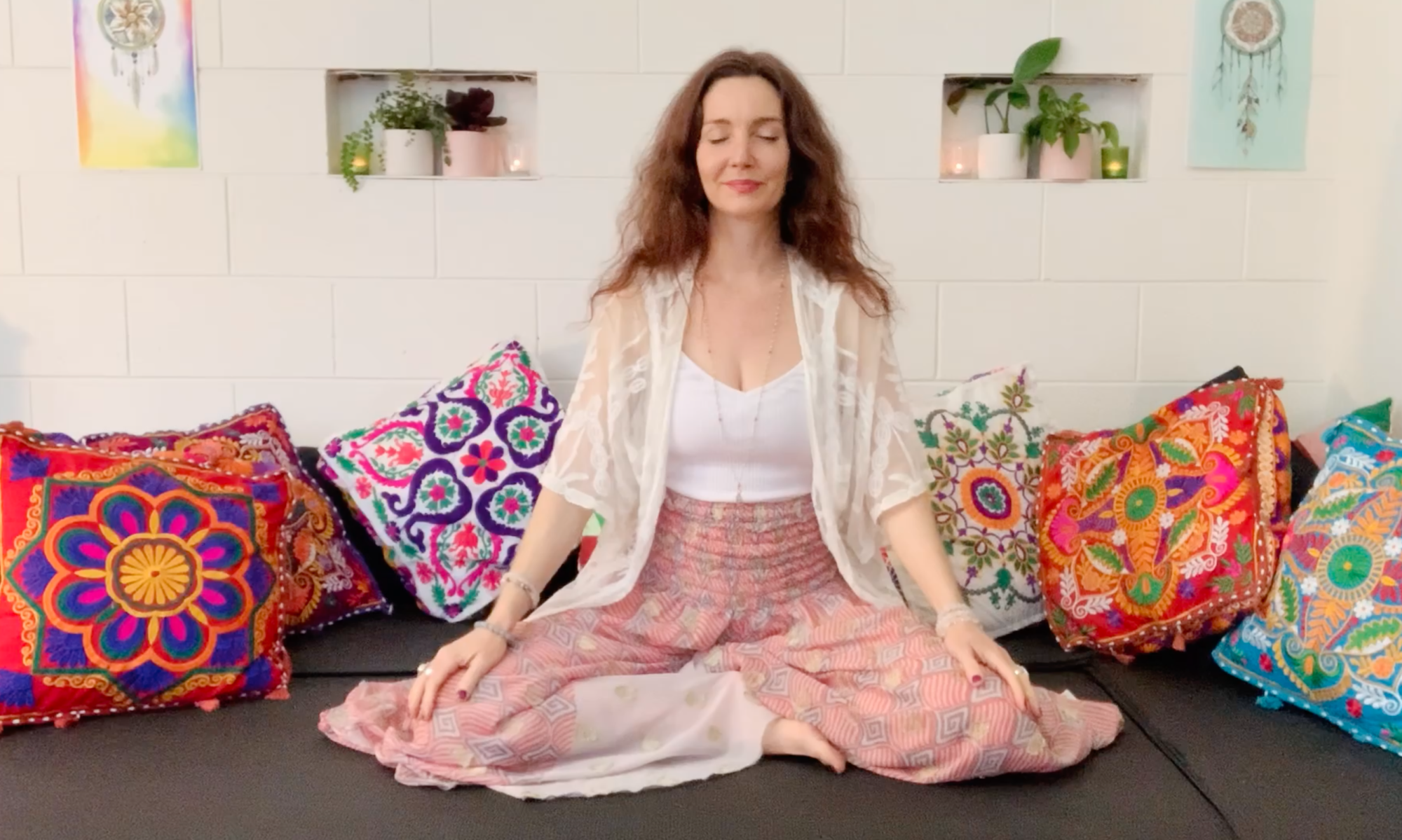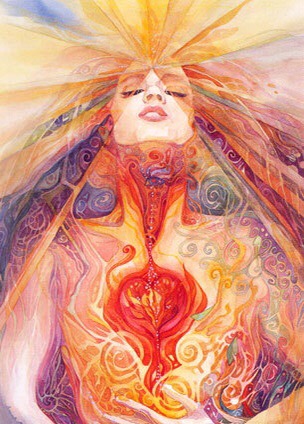The Sanskrit name for the heart chakra is Anahata or ‘un-struck’ – in the Indian Vedic tradition there are two kinds of sounds, and ‘unstruck’ means an inner resonance or subtle vibration that is perceived through the heart centre.
The heart is the place of the awakened self. Here we move from group consciousness, defined by family, tribe, society into a more individual, self-reflective consciousness. Here we find our own heart truths.
This chakra builds a bridge between the physical and spiritual dimensions of your self. Carl Jung described the heart chakra as the centre of thinking and feeling, the beginning of reflections, values, and ideas.
Bring your hands palm to palm, in prayer position in front of your chest, connect the base of your thumbs to your sternum – this position is called Anjali Mudra.
Breathe into your belly and lightly close your eyes. Turn your focus to your breath.
Next, rub your palms together vigorously. Bring your right palm to the centre of your chest at Anahata and place your left on top of your right.
Feel the warmth and radiance of your heart and chest. Visualize the green, radiant glowing light emanating from your heart, in all directions.
Play the video and begin to sound the mantra “yam” pronounced “yum.” (This is the seed mantra of the element air. The heart centre is associated with the cosmic element of “prana” or “air.”)
(Note: this video goes for about an hour so you may want to set a timer for a shorter period of time, say 5-10 minutes)
Release your palms to face up on your lap. Direct some of your lightness and heart energy to someone in your life in need of compassion or healing. Finally, inhale your arms overhead and exhale your arms down to connect to the Earth before completing your practice.
Carry this open and loving heart energy with you into your day. Yum.
Hari om tat sat. Namaste. Blessings.
ॐ
Try Chakradance – Rhythm for your soul
Art credit: artist unknown


